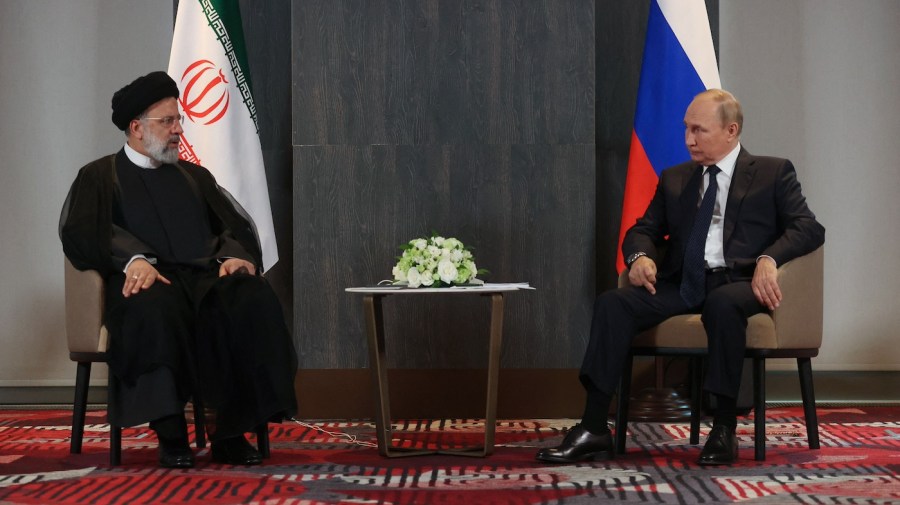
The Biden administration on Tuesday announced new sanctions against Russia and Iran in response to efforts by both countries to influence the 2024 election.
“The Governments of Iran and Russia have targeted our election processes and institutions and sought to divide the American people through targeted disinformation campaigns,” Bradley T. Smith, the acting Under Secretary of the Treasury for Terrorism and Financial Intelligence, said in a statement.
“The United States will remain vigilant against adversaries who would undermine our democracy.”
The sanctions target the Cognitive Design Production Center (CPDC), a division of Iran’s Islamic Revolutionary Guard Corps, and the Center for Geopolitical Expertise and its director Valery Mikhaylovich Korovin, both affiliates of the Russian Main Intelligence Directorate, also known as the GRU.
“These actors sought to stoke sociopolitical tensions and undermine our election institutions during the 2024 U.S. general election,” the State Department said in a release announcing the sanctions.
Both build on existing sanctions leveled against the two countries and come after U.S. intelligence agencies identified campaigns from each nation to undermine the 2024 election by dividing Americans and promoting misinformation.
In a series of calls with reporters ahead of the election, intelligence officials said both countries were building on past efforts, creating more sophisticated false content and relying on artificial intelligence to boost their efforts.
Russia was behind a number of false videos, including one accusing Vice President Harris of being involved in a hit-and-run.
Iran also devoted more resources to pushing disinformation in Spanish.
The intelligence community assessed that while Russia aimed to aid President-elect Trump in winning the election, Iran preferred Harris.
Tuesday’s sanctions were not the first response to Russian interference.
The Justice Department ahead of the election seized 32 different web domains, many of them appearing to be legitimate news sites such as The Washington Post, but promoting content in line with Russian narratives.
That included numerous fake articles about its war with Ukraine.
And in a separate indictment, the Justice Department charged two employees associated with RT, previously known as Russia Today, for contracting with an American-based media company to covertly pay well-known conservative commentators like Tim Pool and Bennie Johnson to promote Russian narratives.
Both men have said they were unaware of the true backers of the effort after being presented information on a false investor and that they never shifted their content.
Tuesday’s sanctions, however, did not target China, another country U.S. intelligence pinpointed as being active in seeking to influence the election.
China expanded their influence efforts by creating fake social media accounts to “push narratives and sow divisiveness,” mirroring efforts deployed by Russia in prior elections. The country was not, however, found to be taking action with the goal of promoting either candidate.












